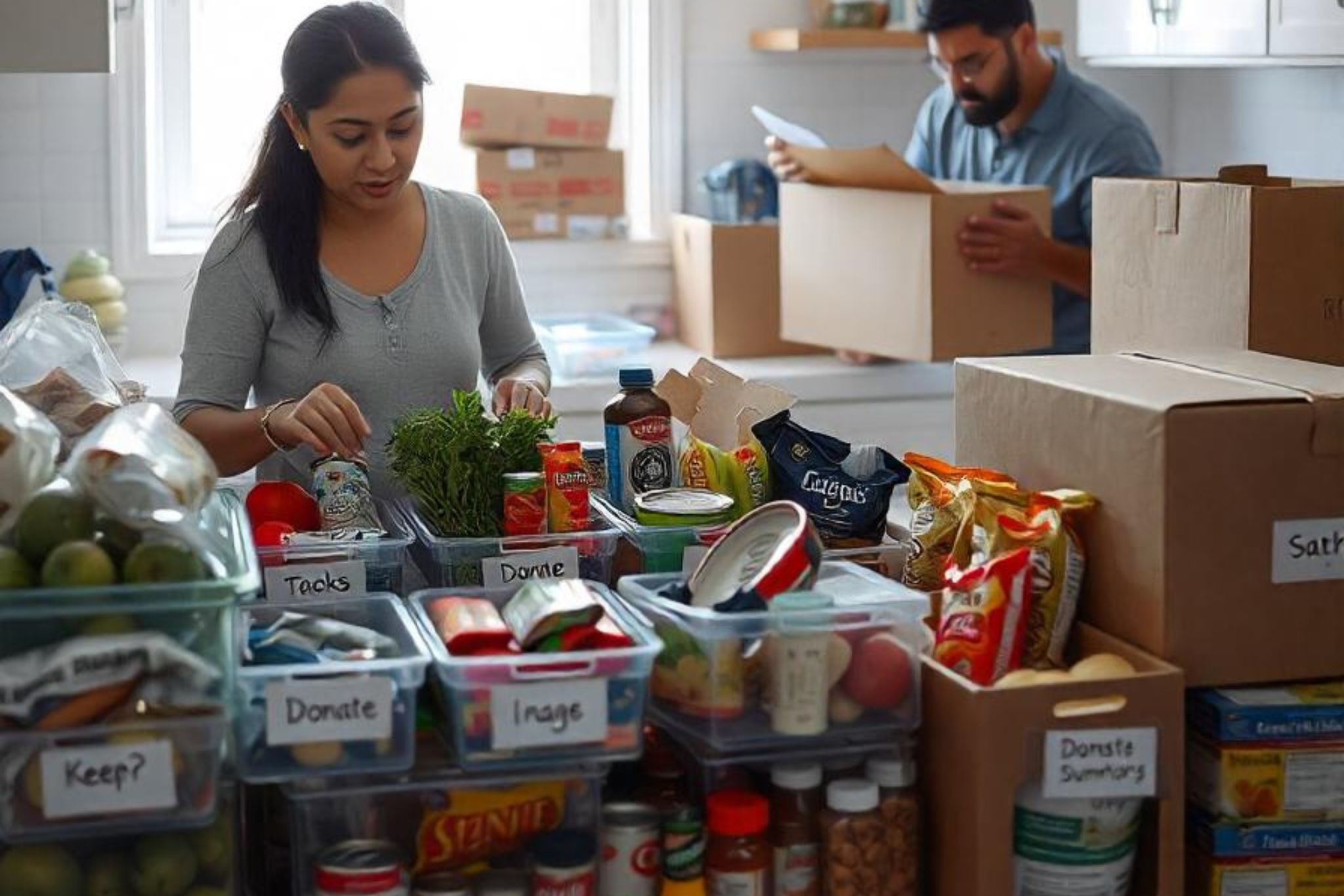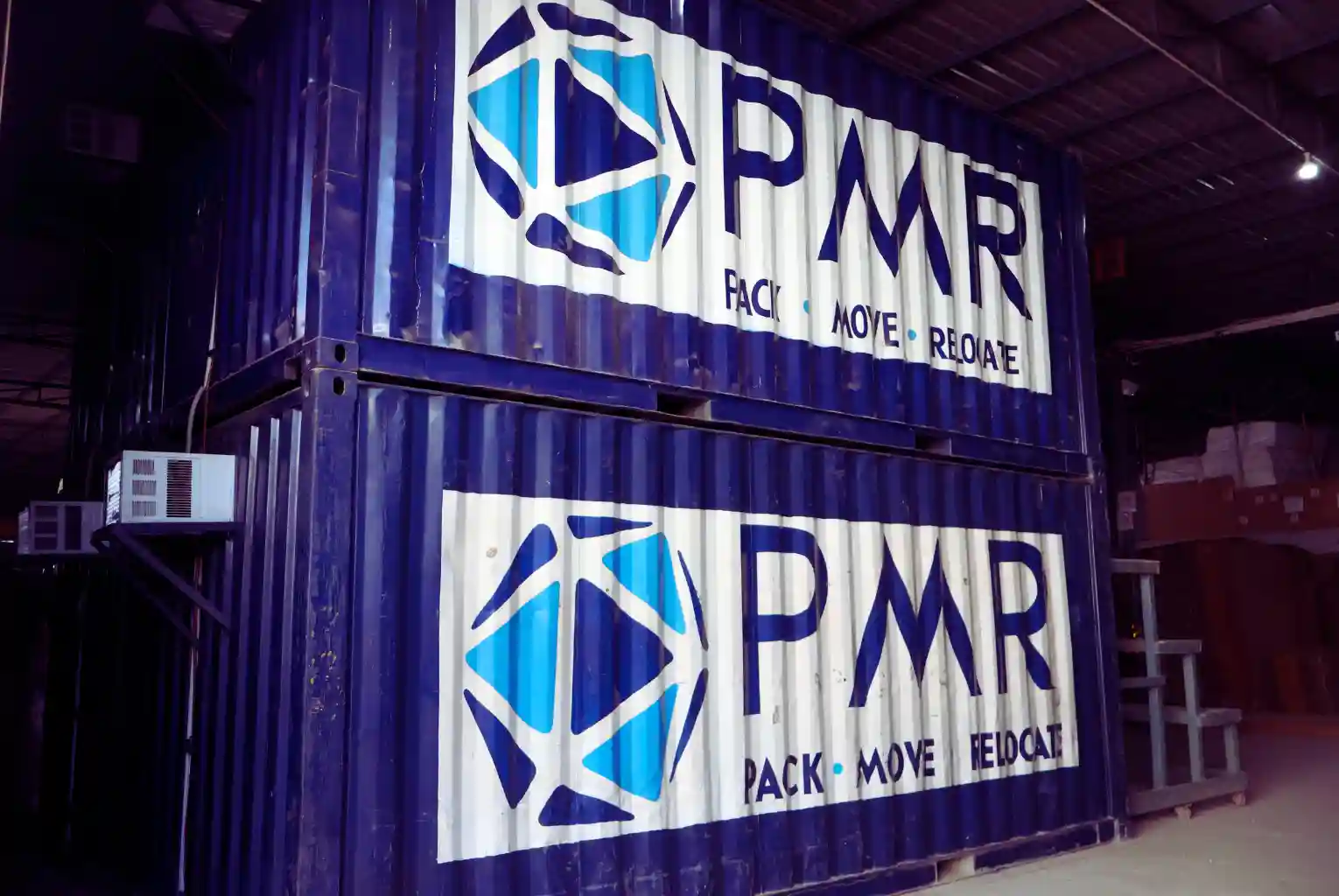Introduction
Moving can be stressful, especially when it comes to moving food from your kitchen. Whether moving across the street or across the country, figuring out what to do with food is crucial to minimize waste and hassle during your packing efforts. Knowing which foods to keep, donate, or discard is integral to planning a smooth-running move without anxiety.
Here's a step-by-step guide on what to keep about your pantry, refrigerator, and freezer items during a move.
What Foods Should You Keep When Moving?
While picking out what to bring along, always take non-perishable foods and those that are very transportable and do not spoil in transit. Among these, some of the best options include:
Canned Goods
Canned vegetables, beans, soups, and fruits are good things to pack when relocating. These are long-shelved items and will not spoil easily during transportation. As they are heavy, it is best to pack only those things that you know you will use sooner after the move.
Dried Goods
Rice, pasta, flour, and other dried items are perfect candidates for keeping since they are light, easy to keep, and unlikely to spoil. Store these items in airtight containers to prevent leakage or contamination.
Spices and Seasonings
Your spice cupboard likely has many costly herbs and spices that you don’t want to discard. These cannot be readily harmed, do not spoil, and therefore are excellent items to pack for your new home. Organize them into smaller containers to make them easier to carry.
Bottled and Jarred Items
Other consumables, such as sauces, condiments, and oils, can often survive the move. If you're moving over a long distance and food storage is involved, wrap glass bottles with enough care so they don't break during transportation.
Snacks
Packaged snacks such as chips, nuts, and crackers are easy to pack and move. These non-perishable items can be enjoyed during the trip or once you arrive at your new home.
Snacks such as chips, nuts, and crackers are easy to pack and transport. These non-perishable items can be enjoyed while in transit or upon reaching your destination.
Foods You Should Donate Before Moving
One of the best things you can do when preparing to move is to donate excess food. Food donation before moving is a responsible way to handle items that are still good but might not make sense to transport. Here’s what you should consider donating:
Unopened Non-Perishables
If you have an abundance of canned goods, boxed meals, or shelf-stable snacks that you don’t foresee using in the short term, consider donating them to your local food bank. These organizations will gladly accept unopened, non-perishable items to help those in need.
Excess Pantry Items
If you have dry goods like pasta, rice, or cereal, you can also donate some of those extras. Although it can be transported, it’s better to reduce the load and help others in the process. Donating these items also helps with food waste reduction during moving.
Sealed Beverages
Unused drinks including bottled water, juice or soda are bulky and heavy. It may be more practical to donate these if you have a long way to move. Shelters and other donation sites usually accept sealed beverages.
What Foods Should You Discard Before Moving?
Some foods simply don’t travel well that they are best thrown away or consumed before the move. These items to be used up or discarded to avoid the spoilage or potential mess in moving day.
Perishable Foods
Moving perishable foods can be a bit cumbersome and, most of the time, not effective due to distance. Fresh vegetables fruits, and other dairy products and meats are consumed before a move. Otherwise, moving perishable items without proper refrigeration can lead to spoilage, making it safer to discard these.
Frozen Foods
While it’s possible to move frozen items short distances with coolers, long-distance moves are another story. What to do with food in the refrigerator before moving, especially frozen items, depends on the distance and time involved. If you do not have control over whether frozen foods will stay frozen, then it's probably best to toss them or find a neighbor or friend who can use them.
Opened Condiments and Sauces
Partially used condiments, sauces, and salad dressings tend not to be worth the hassle of packing. Opened bottles that leak can really make a mess. Use them up before you move or toss them if they are approaching their expiration date.
Leftovers
All leftovers should be consumed before moving day or discarded. They won't keep on a long journey and may lead to some nasty smells or spills in your moving boxes.
Packing Tips for Moving Food
Moving food packing becomes the next challenge once you’ve determined what to keep. Here are some suggestions on how to pack foods how to pack food for moving in order not to damage any of them during transport:
Use Sturdy Boxes
Place canned and jarred items in heavy-duty boxes to prevent breakage. Pack heavier items, such as cans, in smaller boxes to make the load manageable.
Wrap Glass Containers
Wrap each glass container in bubble wrap or newspaper to prevent breakage. Place them upright in the box and label it as “fragile” to ensure extra care is taken.
Coolers for Perishables
Pack dairy, fresh produce, frozen foods, etc., in coolers with ice packs, in case you're moving short distances. This way, they will not turn out to be spoiled.
Seal Open Packages
Wrap all loose dry goods tightly. Also, pack the open rice, flour, or sugar bags into zip-lock bags or air-tight containers.
Storing Food Before the Move
Sometimes, timing your move ideally can be difficult, and you may need to store your food temporarily. Here’s the best way to store food before moving:
Dry and Cool Places
Pack non-perishable food in a cool, dry place up until the moving day. Store them in boxes or bins that can be carried conveniently, and label everything accordingly.
Properly Refrigerate and Freeze
If it's a local move, keep perishables refrigerated or frozen until the last moment. Do not thaw frozen items unless you are willing to cook or consume them immediately.
Final Thoughts
Handling food during a move requires some planning and consideration, but it doesn’t have to be stressful. By making smarter decisions about keeping, donating, and discarding items, you will not only reduce the hassle that comes with food movement but also minimize food waste while allowing others to enjoy those items as well. Use these food-
moving tips and enjoy a smooth transition to your new home without worrying about your kitchen contents.







